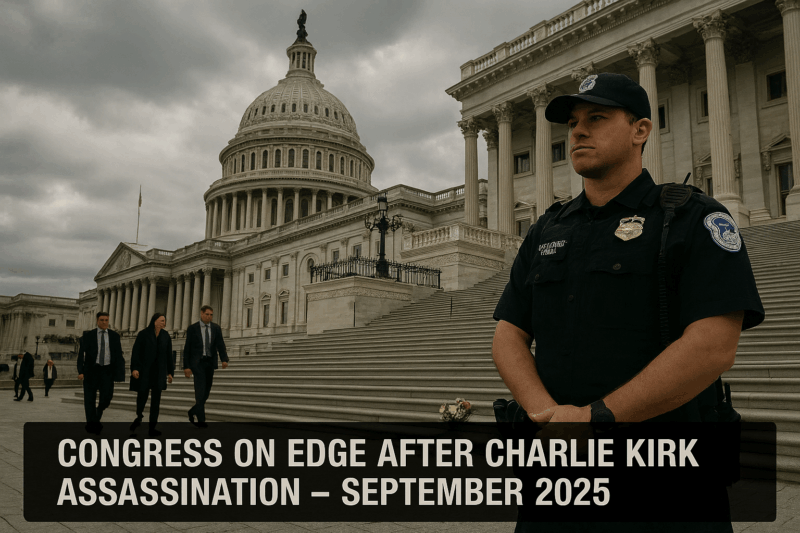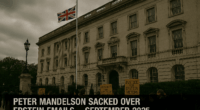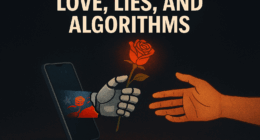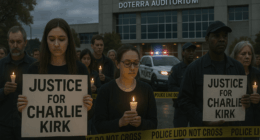A Capitol Gripped by Fear
On September 10, 2025, the brazen assassination of conservative activist Charlie Kirk at Utah Valley University sent shockwaves through Washington, D.C., plunging Congress into a state of dread. The 31-year-old’s death, from a sniper’s bullet fired during a public event, has lawmakers canceling appearances, arming themselves, and demanding stronger protections. As the nation grapples with yet another act of political violence, the halls of Capitol Hill echo with a chilling question: Who’s next? This tragedy, unfolding against a backdrop of escalating threats, threatens to reshape the bond between elected officials and the public they serve.
The Human Toll: Lawmakers’ Lives Upended
For members of Congress, Kirk’s killing is a stark reminder of their own vulnerability. Rep. Alexandria Ocasio-Cortez (D-N.Y.), no stranger to death threats, postponed two North Carolina events, citing outdated security protocols unfit for today’s “digital threat environment.” Rep. Nancy Mace (R-S.C.), a vocal critic of transgender rights, canceled all outdoor appearances and vowed to carry a firearm, declaring, “If you are vocal, your life is at risk.” The emotional weight is palpable—lawmakers like Rep. Jared Moskowitz (D-Fla.) describe colleagues as “scared to death,” privately pleading with House Speaker Mike Johnson for help while maintaining public composure.
The chaos spilled into the House chamber hours after the shooting. A moment of silence for Kirk dissolved into acrimony, with Rep. Anna Paulina Luna (R-Fla.) shouting, “Y’all caused this,” at Democrats, exposing raw partisan tensions. Staffers and families, too, feel the strain, as threats against them have surged, leaving Capitol Hill a fortress of anxiety where even routine votes feel fraught.
Facts and Figures: A Surge in Threats and Response
The numbers paint a grim picture. The U.S. Capitol Police are on track to investigate 14,000 threat cases against lawmakers in 2025, up from 9,000 in 2024 and just 4,000 in 2017. Kirk’s assassination, labeled a “targeted attack,” joins a litany of recent political violence: two assassination attempts on President Donald Trump, the January 6, 2021, Capitol riot, the 2022 attack on Paul Pelosi, and the murders of Minnesota’s former House Speaker Melissa Hortman and her husband. On September 11, a false bomb threat at the Democratic National Committee’s headquarters near the Capitol heightened fears, requiring swift police action.
In response, lawmakers are fortifying defenses. A pilot program offering $20,000 for residential security and $5,000 monthly for private protection, set to expire in September 2025, may be extended, though fewer than two dozen members participated. Speaker Johnson, acknowledging the “dangerous society,” is reviewing options, but full security details for all 435 House members remain impractical. The Secret Service also bolstered measures for Trump, relocating a 9/11 Pentagon ceremony and securing his September 11 Yankees game visit.
Broader Context: A Nation’s Descent into Political Violence
Kirk’s assassination underscores a troubling trend of politically motivated attacks. The conservative firebrand, a Trump ally and Turning Point USA co-founder, was a lightning rod for his views on election integrity and transgender issues, making him a target in a polarized climate. This incident echoes historical flashpoints like the 2017 shooting of Rep. Steve Scalise, but today’s digital age—amplified by social media and foreign disinformation—intensifies risks. Governor Spencer Cox warned of “bots from Russia and China” stoking violence, a claim reflecting broader concerns about external actors exploiting America’s divides.
The societal impact is profound. Lawmakers fear retreating from public life could erode democratic access, a hallmark of American governance. Yet, figures like Sen. Josh Hawley (R-Mo.) insist on continuing public appearances to defy fear, while others, like Rep. Tim Burchett (R-Tenn.), criticize leadership’s “protective bubble” for inadequate preparation. The choices made now could redefine how Congress engages with constituents, potentially limiting town halls and open events.
What Lies Ahead: Balancing Safety and Democracy
As Congress navigates this crisis, Speaker Johnson faces pressure to expand security funding, possibly through federal grants or enhanced Capitol Police resources. Proposals include advanced threat monitoring and mandatory security training for lawmakers. Community forums are urging de-escalation, with leaders like Johnson advocating for a “new tone” in politics. Globally, nations like the UK, facing similar political unrest, offer lessons in balancing security with public access through encrypted communication and rapid-response protocols.
The arrest of 22-year-old Tyler Robinson on September 12 for Kirk’s murder offers hope for justice, but the broader challenge persists: preventing the next attack. Vigils for Kirk and calls for bipartisan unity signal a desire to heal, but systemic fixes—like countering online radicalization and fortifying event security—are critical to safeguarding democracy.
Conclusion: Courage Amid Crisis After Charlie Kirk Assassination
The Charlie Kirk assassination has left Congress shaken, with lawmakers like Ocasio-Cortez and Mace embodying the fear and defiance coursing through Capitol Hill. As they bolster security and cancel events, the nation watches a pivotal moment unfold—one that tests the resilience of democratic engagement. In honoring Kirk’s memory, America must confront the specter of political violence, ensuring that fear does not silence the voices of justice and representation.






